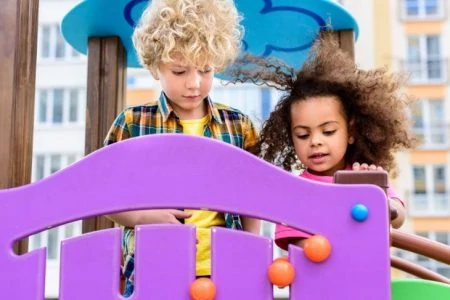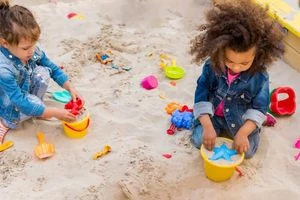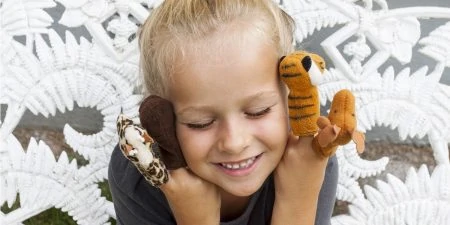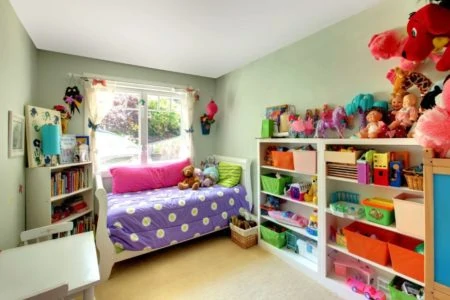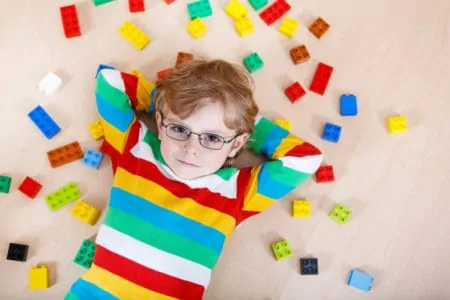Remember the endless hours you spent playing outside as a kid? If you are worried your child isn’t getting that same experience due to busy schedules or safety concerns, you aren’t alone.
However, play isn’t just a way to pass the time; it is a critical part of how children learn and grow. Whether they are building forts, playing house, or just running around, they are developing vital life skills that will serve them well into adulthood.
Keep reading to discover why prioritizing playtime is one of the best things you can do for your little one’s development.
Key Takeaways
- Brain boost: Playtime significantly increases IQ and cognitive development in young children.
- Emotional regulation: Unstructured play helps kids manage stress and process complex emotions.
- Social skills: Interaction with peers teaches empathy, negotiation, and conflict resolution.
- Physical health: Active play develops motor skills and builds endurance.

The Benefits of Play for Kids
Playtime creates a well-rounded, healthy child. Here are the top 10 benefits of ensuring your child gets enough time to just be a kid.
1. Boosts Brain Power
Offering your child toys and letting them explore can significantly build brainpower. Research suggests that frequent playtime with toys during infancy is linked to higher IQs by age 3, with benefits lasting well into the preschool years. It turns out that stacking blocks and rattling keys are actually serious brain exercises.
2. Improves Creativity
When children have time to play, they have the freedom to imagine and create. Whether they are making mud pies in the backyard or testing their physical limits with cartwheels, they are stretching their creative muscles. This imaginative play fosters the kind of innovative thinking that solves problems later in life.
3. Develops Vocabulary and Language
Participating in pretend play helps children, especially those in preschool, improve their speech and comprehension. Being around other kids during play is equally important because children love to mimic and learn new words from their peers. It creates a natural, pressure-free environment for language acquisition.
4. Leads to Happier Children
Beyond intelligence, you simply want your child to be happy. For many kids, pure joy comes from pursuing their favorite form of play, checking out new toys, or engaging in backyard hijinks with a friend. These positive experiences build a foundation for emotional well-being that can last a lifetime.
5. Helps Kids Cope With Stress
Kids face plenty of stressors as they grow, from peer pressure to academic demands. Play serves as a natural pressure valve, allowing them to rebalance and cope with daily anxieties. Learning to use play as a de-stressing tool is a healthy habit that will serve them well into adulthood.
6. Contributes to Better Physical Health
Play ensures your child gets necessary physical activity without it feeling like a chore. Running, jumping, and climbing strengthen their bodies, build endurance, and refine motor skills. As a bonus, all that physical exertion usually leads to better sleep for them, which means better sleep for you.
7. Helps Kids Be More Sociable
Playtime provides a fun, non-judgmental space for children to learn the social “give and take” of relationships. Even playing near other children (parallel play) benefits them, but interactive play teaches sharing, negotiation, and cooperation. It is where they learn how to be a good friend.
8. Builds Self-Confidence
Tackling challenges and succeeding makes your child feel capable and strong. Whether it is mastering the monkey bars or solving a tricky puzzle, taking a risk and accomplishing a goal is a massive confidence booster. Additionally, navigating social conflicts during play helps them realize they can handle difficult situations (1).
9. Helps Kids Express Their Emotions
Whether kids are happy, sad, or scared, play allows them to process those feelings safely. Acting out scenarios with dolls or action figures can help them express anger or fear in a constructive way. It gives them a sense of control over their internal world and helps them understand their own emotions.
10. Lets Kids Explore Their Passions
Play allows kids to pursue whatever interests them at that moment without an agenda. One day they might be a rock star singing into a hairbrush; the next, they are an astronaut blasting off to Mars. This safe exploration helps them discover lifelong passions and hobbies.
Are Toys Good or Bad for Play?
Toys are a mixed bag when it comes to development. While some provide necessary stimulation, others can be distracting or limiting. It is easy to fall into the trap of buying the most expensive, flashy toys, but research suggests simpler might be better.
Studies show that when electronic toys talk and sing, babies tend to be quieter (2). Instead of practicing language development, babies become observers rather than participants.
The key is distinguishing between entertainment and play. Entertaining toys (lights, screens, constant music) amuse a child passively. True play toys engage a child’s curiosity and require them to do the “work,” fostering imagination and problem-solving.
How to Choose the Right Toys
Walking into a toy store can be overwhelming, but thinking strategically helps. You want tools that facilitate play, not just objects that clutter the floor.
Here are guidelines to help you find the best options for your child:
- Find open-ended toys: Look for items that can be used in multiple ways. Blocks are a classic example because a child can build a castle, a bridge, or a spaceship, inciting their imagination differently every time.
- Select toys that grow with them: Avoid trends that are only interesting for a week. Long-lasting choices include dollhouses, trains, stuffed animals, and action figures (3).
- Prioritize problem-solving: Kids love figuring things out on their own. Toys like puzzles, clay, and nesting cups challenge their brains and provide a sense of accomplishment.
- Encourage creativity: Toddlers have boundless creativity that needs an outlet. Nurture this with dress-up clothes, play kitchen items, and dolls that require the child to create the narrative.
- Get them moving: Active play is crucial for physical and mental health. Tricycles, toy gardening tools, and balls are excellent for getting wiggles out.
- Look for intergenerational appeal: Playing with parents or grandparents bonds the family. Classic board games teach turn-taking and how to lose gracefully, a skill best modeled by a loving adult.
Baby Toy Guides
Toys for Boys
- Best Toys for 3-Year-Old Boys
- Best Toys for 4-Year-Old Boys
- Best Toys for 5-Year-Old Boys
- Best Toys for 6-Year-Old Boys
- Best Toys for 7-Year-Old Boys
- Best Toys for 8-Year-Old Boys
- Best Toys for 9-Year-Old Boys
- Best Toys for 10-Year-Old Boys
- Best Toys for 11-Year-Old Boys
- Best Toys for 12-Year-Old Boys
Toys for Girls
- Best Toys for 3-Year-Old Girls
- Best Toys for 4-Year-Old Girls
- Best Toys for 5-Year-Old Girls
- Best Toys for 6-Year-Old Girls
- Best Toys for 7-Year-Old Girls
- Best Toys for 8-Year-Old Girls
- Best Toys for 9-Year-Old Girls
- Best Toys for 10-Year-Old Girls
- Best Toys for 11-Year-Old Girls
- Best Toys for 12-Year-Old-Girls
Balancing Screen Time and Play
One of the biggest obstacles to productive play is excessive screen time. Every hour spent passively watching television or staring at tablets is an hour lost for developmental play.
While technology has its place, try to set clear limits. Encouraging screen-free zones or times ensures your child has ample opportunity to engage with the real world, develop motor skills, and use their own imagination to be entertained.
FAQs
The Bottom Line
Now that you understand the immense value of play, you can feel confident in prioritizing it over a packed schedule of structured activities.
Remember to give your child a variety of options, from physical challenges to quiet creative time. By stepping back and letting them explore, you are giving them the tools they need to grow into happy, healthy, and well-adjusted adults.
